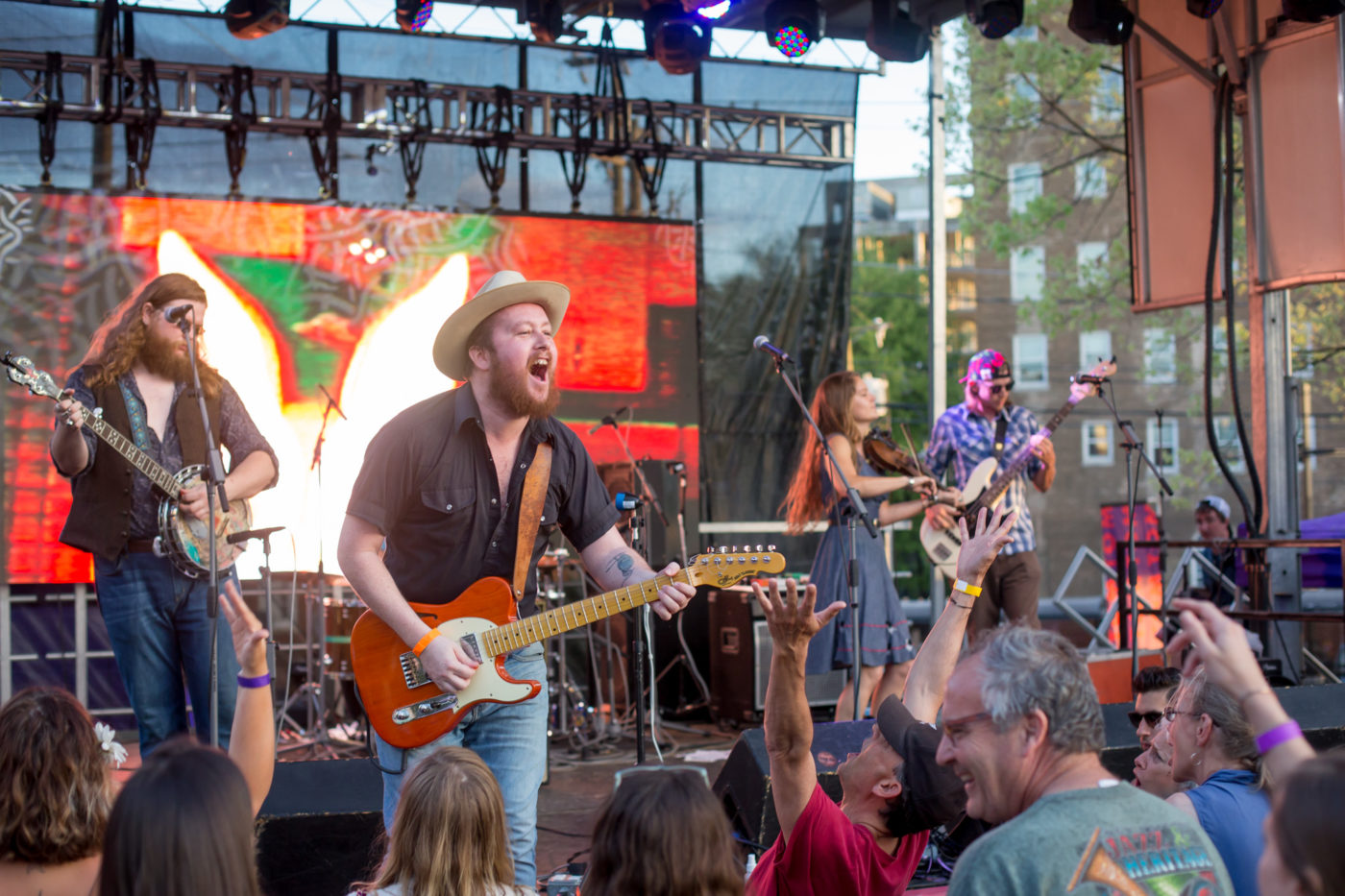For Charlottesville-based musical artists, the cancellation of live shows has had varied impacts. Full-time performers struggle to figure out a financially stable way to continue creating, while part-time performers still feel the weight of being unable to connect with audiences. For some, the pandemic has derailed long-built momentum, while for others it has provided valuable time to focus on writing and reflect on their trajectories as artists.
Chamomile and Whiskey
“Charlottesville has a really vibrant music scene, but there aren’t a ton of people who do it for a living full time,” said Koda Kerl, a founding member of Chamomile and Whiskey. “I think it’s tough for everyone that plays or is involved with music in the sense music is important to us and it’s a big part of our lives, but for those of us that do it for a living, there’s that whole other side of things as well.”
With some major tours cancelled, Kerl said he’s lost basically all his income for the foreseeable future. At first, he expected to lose a couple months’ worth of income. “But now at this point, it’s looking like it’ll probably be most of the year, if not longer,” he said.
Before the pandemic, Chamomile and Whiskey was planning to release a new album, recorded last November. “We were putting all our chips on the table; like all our money, everything we had into this record,” Kerl said. The band postponed the album release indefinitely.
Kerl is considering stretching the release out by releasing more singles and videos than they normally would, in an attempt to offer new content while hopefully waiting until the return of live performances to release the entire album. “You get a lot of press and kind of buzz around the record release, so you don’t want to just waste that,” he said. “Usually you try to kind of leverage a new record into better festival slots, better touring gigs.”
In the meantime, Kerl has turned livestreaming performances from his home. He said he didn’t expect much from these online shows but has been pleasantly surprised to see them enthusiastically received by fans, some of whom have reached out to thank him and donated to his online tip jar.
“There are a lot of people out there who value music and are willing to help support the band,” Kerl said. “If you’ve got that bar that you love, or that restaurant you love, or that band that you love, support them however you can.”
Pale Blue Dot
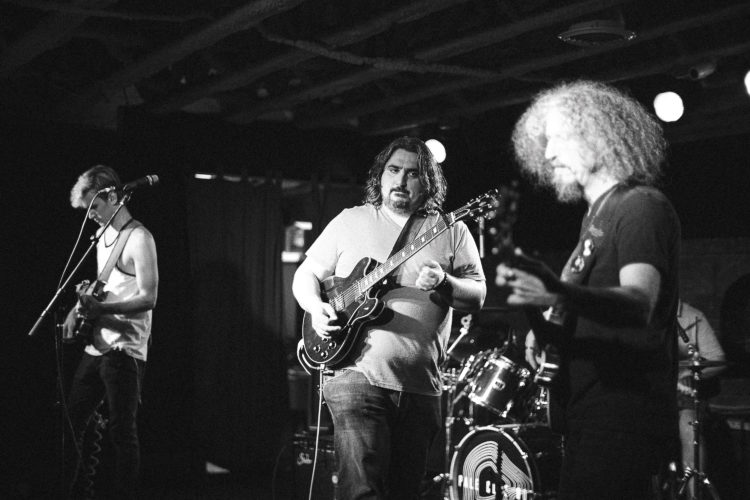
Pale Blue Dot
Credit: Courtesy Tony LaRocca
With 70 to 90 tour dates lined up, Tony LaRocco, lead singer and guitarist of rock band Pale Blue Dot, saw this year as a chance to take his band to the next level. “You know, kind of officially saying: We’re doing this full time,” LaRocco said. They were only able to play about 12 of those shows before the pandemic hit.
Pale Blue Dot had planned to release their upcoming album in May, but the production timeline had to be pushed back. LaRocco explained that their producer has a full studio in his basement and works for both label bands and indie bands, at different prices.
“All these major label artists were coming to him and saying, ‘You’re the only person who can get to the studio. Everybody else, you know, in LA and New York — they can’t go to their studios,’” LaRocco said. “He’s backlogged with all this work that’s paying, you know, $6,000 to $7,000 a song. We’re not even paying a quarter of that.”
Now, it looks like the album won’t be finished until late July, but LaRocco said there’s no rush, given the circumstances. He expressed a similar mindset regarding live performances, urging caution amid the pandemic over haste.
“We’re itching to play,” he said. “But I care about my safety, I care about the safety of my guys, and I care about the safety of the audience.”
While LaRocca has livestreamed a few concerts from his home, Pale Blue Dot has yet to livestream as a band. LaRocca said if they do, they would like it to be for the release of their record, but he is concerned about the audio compression that occurs on most social media platforms. However, he expressed enthusiasm about a professional recording studio that has approached the band about doing a livestreamed show, given the possibility to have more control over the sound quality.
Even once live performances resume, LaRocco predicts that reduced capacity of venues will make it financially impossible for his band to tour for some time. He explained that the band doesn’t usually expect a large crowd in new cities; however, their ability to play these gigs relies on filling rooms in cities where they’ve already established themselves.
“If I play Charlottesville, … I know I’ll get a decent paycheck that night, which will carry us into a tour, where we’re probably not going to see a decent paycheck until like the third or fourth show,” he said. “That paycheck pays for gas. It pays for food. That’s the level of importance.”
Tonia Ray

Tonia Ray
Credit: Courtesy Tonia Ray
“This year was probably going to be one of my busiest years with music,” said vocalist Tonia Ray. Before the pandemic hit, she was scheduled to perform at a variety of venues including theaters, weddings, wineries, retirement homes and rehab centers. Additionally, she had gigs on cruises in Europe and the Bahamas lined up for the summer. Now, all these events have been cancelled, postponed or otherwise cast into uncertainty.
Ray explained how it can be a slow and difficult process for full-time artists to apply for unemployment assistance. “They’re asking questions like ‘Who was your last employer?’” Ray said. “I haven’t had an official employer for the past — I’m gonna say five years.”
Now, she is applying for the CARES Act’s Pandemic Unemployment Assistance, which provides temporary assistance to self-employed workers, freelancers, independent contractors and part-time workers. “But in order to get that you have to first go through the tiring process of applying for real unemployment first,” she explained.
Ray discussed how the cancellation of her live performances has also impacted the people she reaches with her music. She emphasized how foundational live music can be for her audiences at assisted-living facilities, nursing homes and rehab centers.
“That’s part of the structure of their day,” she said. “It makes them feel safe. It makes them feel comfortable. It makes them know that things are going on. It gives them hope. The pandemic has really affected all of that.”
Ragged Mountain String Band
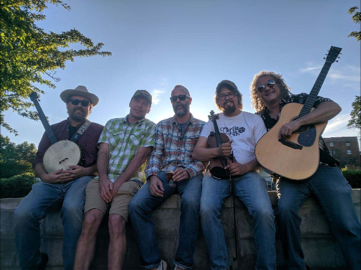
Ragged Mountain String Band
Credit: Courtesy Tucker Rollins
Ragged Mountain String Band has played a weekly gig at the Whiskey Jar for eight years. Tucker Rollins, the band’s mandolinist, estimates that they only missed two weeks in all the years prior to the pandemic.
This spring, the folk band lost over two months of these weekly performances, along with chances to play weddings, festivals, breweries and vineyards. Rollins and the other members of the band work different jobs as their primary sources of income, but Rollins said the cancellation of live performances has still made a significant dent in his monthly budget.
Ragged Mountain String Band had just recorded their most recent album, “Ham,” when the pandemic hit.
“We had a CD release party, and then right after that, everything got cancelled, so that was a major bummer,” Rollins said. “We had a box of 500 CDs and had one event. Then everything got shut down after that.”
The outdoor patio of the Whiskey Jar opened at 50% capacity on June 3, the band has begun easing back into their weekly performances there.
“It seems like the small venues like the Whiskey Jar and breweries and stuff will probably be the first places that will get going again, which is good for local bands and local music,” Rollins said. “So I’ve been thinking about that — at least we’re lucky enough that we can kind of be in the first phase of live music again.”
Jaewar
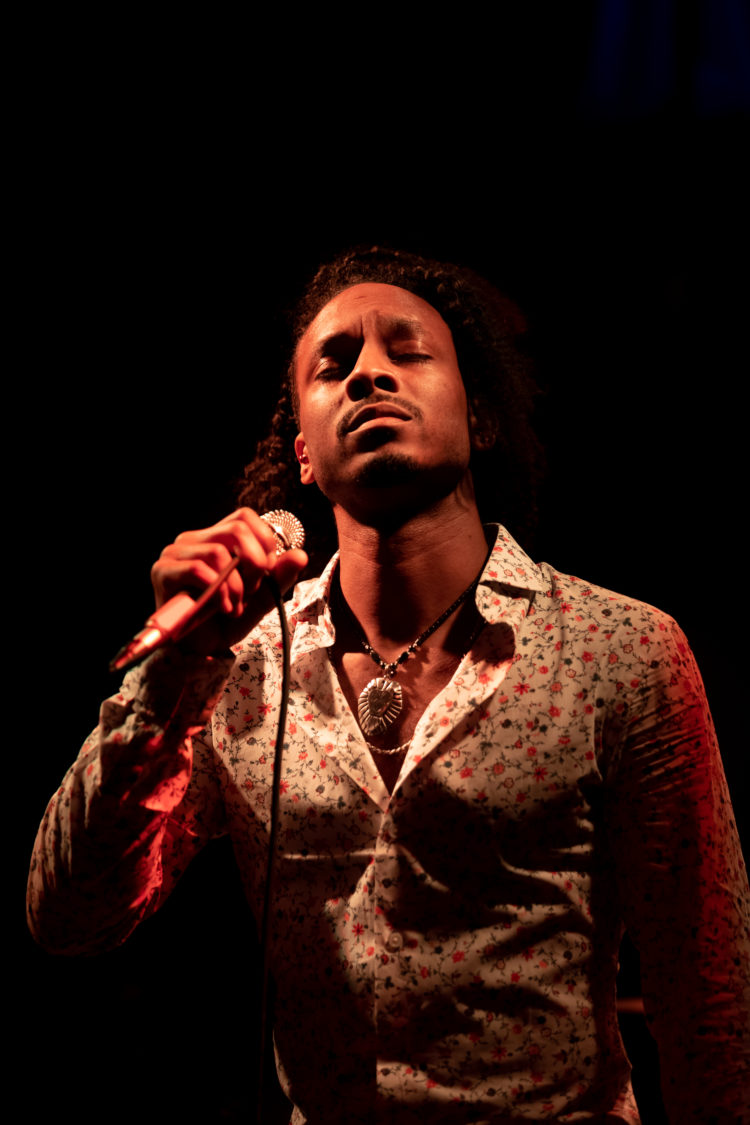
Jaewar performing at Vibe Fest
Credit: Derrick J. Waller Photography, courtesy Jaewar
J. “Jaewar” King usually performs with his band, Vibe Riot, but he has been using the time apart from his band to focus on solo studio work.
“I like to think whenever there’s a challenge: All right, what’s the opportunity?” he said. When the pandemic hit, Jaewar quickly began contacting producers around the world. “I was like: This is an opportunity for me to reach outside of my circle and try to make something happen.”
As a result, Jaewar worked remotely with a new producer on what is now one of his most popular songs, “Coffee Blues.” Currently, he is working remotely with another producer on a song that he thinks will resonate with the present moment.
“This feels like a new awareness from a lot of people on racial problems that have been around forever. But now it’s like, everybody’s paying attention at the same time,” he said. “[The song] feels like how the world feels to me right now, and I’m really excited about it. … There’s some anger, there’s some hurt, there’s some hope — all of those feelings — this song perfectly captures that.”
Vibe Riot recently added a few new members who first performed with the band in March. Jaewar said it was hard to pause just as they were gaining momentum together, and he isn’t sure when and how the band will resume practicing and performing.
“We have a pretty big group, so we could do a full band or scale down solo or singer with guitar player,” he said. “There’s so many different ways that the next performances could look.”
Kendall Street Company

Kendall Street Company
Credit: Courtesy Kendall Street Company
Since returning to Charlottesville after their tour was cut short, the members of jam rock band Kendall Street Company have been looking for new ways to engage with their fans online and grow their band from quarantine.
“We just got off our twice-a-week, two-hour call about how we’re going to try to exist as a musician group,” said saxophonist Jake Vanaman.
Every Saturday night, they livestream a new installment of their “Containment Entertainment” series, including video conference calls among the band, performances livestreamed from empty venues, recordings of the band’s old shows and discussions with guest musicians.
However, it seems online engagement can’t replace live performances. Bassist and vocalist Brian Roy said that while there’s a small amount of money coming in from merch sales, the band’s virtual tip jar and streaming royalties, it’s nothing compared to the income they would be making on the road.
Additionally, Vanaman pointed out that the inability to perform in-person creates a bottleneck for smaller bands that don’t already have a large fanbase.
“The number of times we’ll have people come up just randomly and say, ‘Hey, I’m at your show because I saw your set at a random bar like three years ago,’” he said. “There’s just so many of those little minor opportunities that have to keep happening. There’s a reason why most bands don’t get big overnight.”
The band was looking forward to playing at some festivals that Roy said were big deals for them. Vanaman noted that most festivals are postponing until 2021, instead of cancelling, to avoid refunding ticket sales. With festivals attempting to preserve their lineups for next year, the band has a few spots secured, but new performance opportunities will be scarce.
Kendall Street Company just released “The Nautical Aquatical” — a whimsical EP with a cast of sea creature characters. Roy said that promoting the album from quarantine has been difficult. Themed shows in beach cities had been the goal, but the pandemic has derailed that plan.
“You can’t have a pool party when you can’t have a party,” Roy said. “So, we’re promoting this record that’s all about, ‘Get out there and have fun and smile and dance and be silly!’ And we’re doing it online, which is kind of the antithesis of what’s going on musically.”
Roy hopes the record can still raise people’s spirits.
“Hopefully, we can make some people smile and laugh and have a good time in their houses or at the beach, socially-distanced.”
Richelle Claiborne
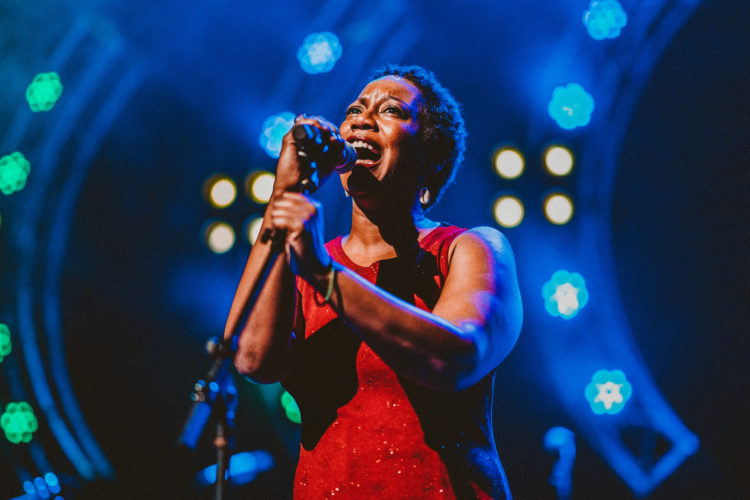
Richelle Claiborne
Credit: Tristan Williams, courtesy Richelle Claiborne
“I was starting to book stuff for the spring and summer and then something in me was like: Don’t worry about it,” said singer and spoken word poet Richelle Claiborne. “You know, my intuition spoke to me, and so I didn’t. And then we all were in quarantine.”
Still, Claiborne has found ways to perform. Online, she performed for the Front Porch’s livestreamed Save the Music concert series and the IX Art Park’s livestreamed IX-a-thon event. Furthermore, she recently joined a new cover band, Rewind, which has been able to perform in person while following social distancing guidelines. Last Friday, they played an outdoor seating area of a restaurant, and they have some gigs lined up for the summer at open air venues, including campgrounds.
While she thinks it will be a long time before large concerts can resume, Claiborne expressed optimism about the ability of artists to adapt.
“I think that part of being an artist is not just being creative with your art, but creative in how you produce your art and how you get your art out there,” she said.
Claiborne noted that the COVID-19 pandemic is far from the only influence on her artistic processes right now, in light of the recent cases of police brutality and the ongoing protests.
“Emotionally, the quarantine didn’t affect me nearly as much as everything that’s been happening in the past week or so. So where I am as an artist right now — I’m in the space where I need to write. And I’m trying to give myself enough care and self-care to be able to do that in a healthy way,” she said.
Keese
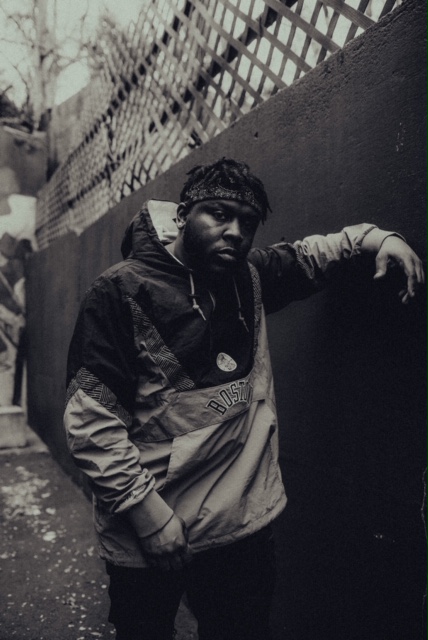
Keese
Credit: Courtesy Keese
Rapper Keese highlighted the importance of live music in challenging times: “If we were able to have [live performances] maybe we could take people’s minds off of certain things just for that little bit of time,” he said. “Just help them cope with it. …
“Doing live shows is a way to gain new fans and just interact with people. It’s different hearing somebody’s music online and seeing them live. Everybody’s not on the Internet. Everybody doesn’t have access to the Internet. So live shows were a way for some people to connect to the artist and get to know the artist.”
Keese has managed to reach some of his fans online. He performed in his first virtual show at Magnolia House this past weekend, alongside Ducttape Jesus, Mike Bizarro and Clark Bar$. The show was livestreamed on Magnolia House’s social media and served as a fundraiser for the Black Lives Matter DC Legal Support Fund.
Keese described the effect of social distancing on his creative process as bittersweet.
“I’ve been able to actually sit down and focus more on just writing more music, but I haven’t been able to record, because I can’t really go anywhere,” Keese said. “But the good thing about it is I got a lot of stuff prepared. When it’s time to resume, I can actually record that music and get it ready and put it out there.”
Love Canon

Love Canon
Credit: Courtesy Love Canon
Andy Thacker and Adam Larrabee play together in the acoustic rock band Love Canon — Thacker on mandolin and Larrabee on banjo — as well as performing individually and in other ensembles.
While income from shows has dried up, both Thacker and Larrabee have seen an uptick in demand for their private lessons, which have shifted from in-person to online. Thacker said that some students who moved away in the past have been able to resume taking lessons virtually, and Larrabee noted that some have resumed lessons to help support musicians.
“I myself have also been taking lessons from friends as an opportunity to connect and to support each other,” said Larrabee. “As long as there are people who have the means to support the people who don’t have the means, we will all be able to figure out how to get through it.”
Nathaniel Star
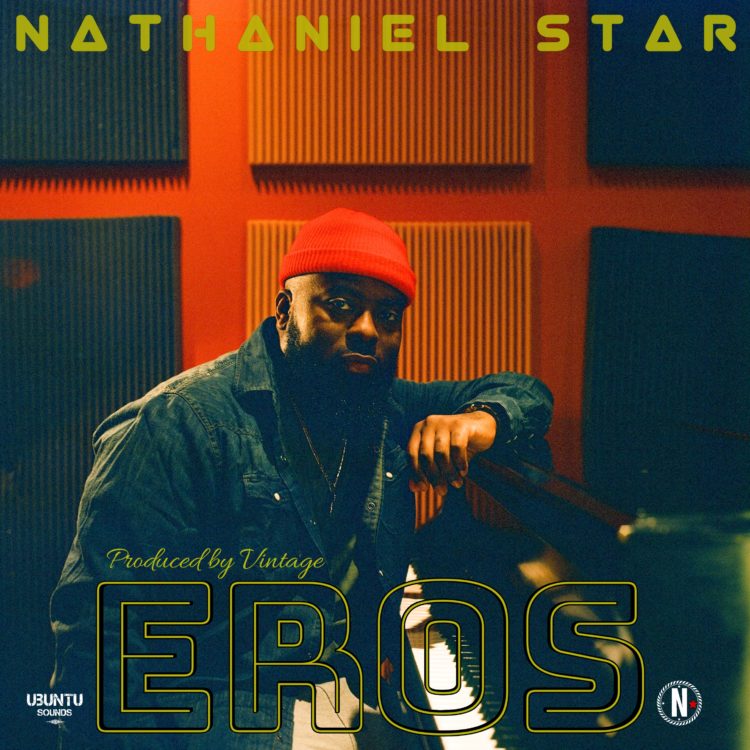
Art for Nathaniel Star's upcoming album, "Eros."
Credit: Courtesy of Nathaniel Star
While social distancing has given some artists time and energy to focus on creative work, singer-songwriter Nathaniel Star says that his current level of productivity is nothing new to him.
“In the first two or three weeks of the pandemic, I’ve finished an album and a half, but that has nothing to do with the pandemic,” said Star. “That’s just how I operate with music. It takes me two hours to write a song, perform the song, mix the song and be done with the song. So my turnover is pretty quick.”
Star currently has six finished albums awaiting release. He was going to release his next project — an R&B soul album of love songs called “Eros” — on June 10, but he decided to wait. “I don’t think that anything needs to dilute the current situation that the world is in,” he explained, “but that doesn’t mean we stop creating.”
Star hopes to see a lot of new music emerge from this time. “We should be at this point full of ideas, thoughts, and aspirations,” he added. “We have time, we have subject matter, and we have a social responsibility to speak to the times that we live in.”


